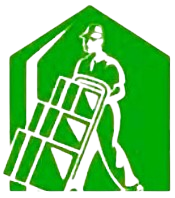Starting a rubbish removal business can be a successful business idea, especially in the UK, with the growing need for waste management and House Clearance. There is an increasing demand for waste removal in the residential, commercial, and industrial districts.
For running a successful rubbish removal company, there are certain factors and steps to ensure that your business thrives in the competitive market, with a strong focus on keeping the environment clean and green, local regulations, licenses, and targeting the right audience. Read below for our guide on how to run a rubbish removal business in the UK.
A GUIDE TO STARTING A RUBBISH REMOVAL BUSINESS
Create a Business Plan
This is your business plan, which consists of all the important details regarding the type of services, areas you’ll serve, target audience, pricing strategy, finances, marketing objectives, etc.
Register Your Business and Secure Necessary Licenses
The main step for starting a business is to register it officially and legally, involving the best-suited business structure. Additionally, for a rubbish removal business, you need to acquire a waste carrier license from your local environment agency, and for those based in the UK, you may need the local council’s approval for planning to operate from a place where the waste is stored or cleared.
Get Essential Equipment or Tools
This could include vehicles for transporting rubbish or certain tools for the safety and handling of different types of waste, depending on the type of your waste removal operations.
Find Your Niche and Target Market
If you are planning to work on a large scale, then you may cater to residential, commercial, and industrial clients, or provide all-in-one rubbish removal and waste management services.
Or you can choose a specific target audience and focus on providing specialised services such as general household junk, commercial rubbish, construction debris, or outdoor waste. While identifying your target customers’ needs, and following local regulations and environmental standards.
Choose the most Suitable Pricing Strategy
Do extensive research on the market and check out your competitors to determine competitive prices for your services. You can offer slightly lower prices, similar rates, or rates based on the service amount or volume of the junk to be cleared.
A bonus tip would be offering a customised quote for your customers based on a schedule so that they can become regulars.
Focus on Eco-friendly Practices
Now, more than ever, there is a need to keep the environment clean and recycle items as much as possible.
Hence, it is smart and responsible for a rubbish removal business owner to promote eco-friendly methods of removal and practices such as recycling, donating, or disposal of waste legally. This not only helps to attract eco-conscious clients but also reduces disposal costs.
Incorporate Traditional and Digital Marketing
Take advantage of the digital world by creating a website showcasing your services, the areas you serve, and all necessary contact details. Form a social media presence and notify existing and potential customers about your services and why they should choose you for credibility.
Similarly, utilise traditional methods of marketing, such as distributing leaflets around the areas you serve or networking with your local authorities, such as real estate companies or property dealers etc.
Excellent Customer Service
One of the most important steps once you have established your business is to keep providing the best customer service possible. Provide on-time services or flexible scheduling with your clients. Be transparent about the services and prices that you are to offer.
Listen to their complaints so you come off as a reliable business owner and foster long-lasting relationships for positive reviews, new customers, and a decent reputation.
Keep Track of Your Finances
Lastly, keep all records of your finances and set a clear budget for essentials such as waste removal equipment, marketing budget, etc.
Ensure that you have clear records of your expenses and income, with steady funding for operational costs and future expansion.
Summary
To summarise, starting your rubbish removal business involves a series of stages, including a successful business plan, a relevant license, investing in the necessary equipment, and offering eco-friendly and target audience-based services and prices.
With a focus on forming a good relationship with the customers and offering sustainable services.


Leave A Comment